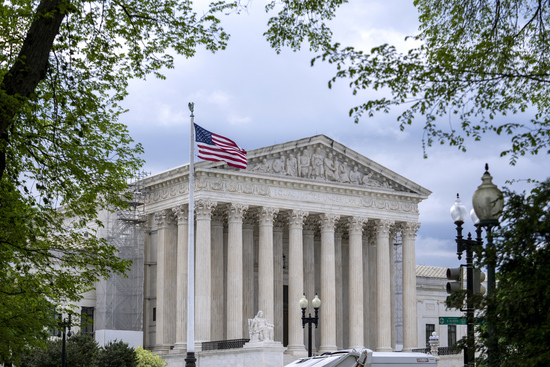In a decision that was expected but is no less appalling, the Supreme Court’s conservative majority just gave the green light for states to defund Planned Parenthood. But the majority decision in Medina v. Planned Parenthood is so much worse than that.
This case has generally been discussed in its factual context, which is whether South Carolina could bar Planned Parenthood from receiving federal Medicaid funds. The legal context, though, is broader. After South Carolina cut off Planned Parenthood funding, a patient, Julie Edwards, sued the state under U.S. code section 1983, which allows private parties to sue the government when it violates their rights. Edwards argued that Medicaid’s “any-qualified-provider” provision confers the right for Medicaid patients to use their physician of choice, and depriving Planned Parenthood of Medicaid funding violated that right.
The court’s conservatives were always going to find a way to make it perfectly fine for states to withhold Medicaid funding from Planned Parenthood, particularly given that they are all in on helping Trump, who has called for the complete defunding of the organization. They get to that conclusion in a sweeping, terrible way.
The majority held that section 1983 does not give anyone the right to sue to enforce the Medicaid-related provision that says “any individual eligible for medical assistance (including drugs) may obtain such assistance from any institution, agency, community pharmacy, or person, qualified to perform the service or services required.”
You, a normal person, might say, That certainly sounds like Medicaid patients have a right to choose their provider.

But the conservatives on the Supreme Court would respond, You fool, you rube. This isn’t a right. It’s more of a benefit, because we don’t really think that Congress meant for you to be able to personally sue to enforce it, even though they explicitly said you must be able to choose your care, for … reasons.
So we’ve got a bad factual decision and a bad procedural decision. But wait, that’s not all!
The holding isn’t limited to Planned Parenthood. Rather, the holding is that individual Medicaid recipients or clinics that receive Medicaid can’t sue to enforce the law’s “any-qualified-provider” requirement.
As bad as all of this is, it wasn’t enough for Justice Clarence Thomas, who wrote a concurrence complaining that people just have too darn many rights they can use section 1983 to enforce. Thomas wants the rights that people can sue to enforce to be limited to how the term was understood when the Civil Rights Act of 1871, the predecessor to section 1983, was passed. This is Thomas’s go-to argument to restrict civil rights, a surface-level trip through history to bolster his bad arguments.
In her dissent, Justice Ketanji Brown Jackson did some actual factual history, pointing out that the Civil Rights Act of 1871 was “an exercise in grand ambition” in the wake of the Civil War, as white Southerners, aided by state and local officials, terrorized newly freed Black people. The act was necessary because the Reconstruction amendments had not adequately stopped state violence, and one remedy was to allow private citizens to sue to secure their rights.
Jackson’s dissent notes that this isn’t the first time the court weakened this civil rights protection. They did it in multiple cases during the Reconstruction era, and the court was not covering itself in glory back then. In 1872, the court upheld a Kentucky statute that barred Black people from testifying against white defendants. In 1883, the court ruled that the 13th and 14th amendments could not serve as the basis for Congress to enact a law prohibiting private parties from discriminating against Black people.
There’s a straight line from those cases to this court’s ceaseless chipping away at civil rights, particularly reproductive health. And these modern cases are no less shameful than the court’s openly racist rulings following the Civil War. The conservatives on the Supreme Court should be ashamed of themselves, but they’re incapable of such a thing.
